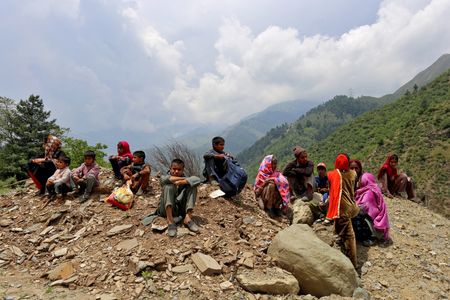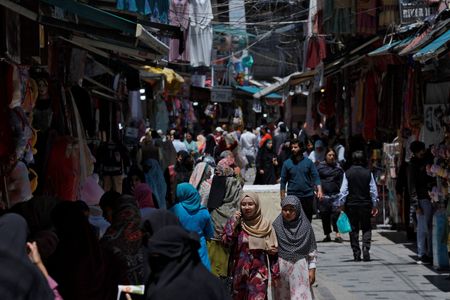By Aftab Ahmed, Saurabh Sharma and Tariq Maqbool
JAMMU, India (Reuters) – After spending days in temporary homes and with relatives, people from both sides of the Indian and Pakistani border are sceptical about this weekend’s ceasefire and in no hurry to return to their villages.
Indian cites like Jammu and Amritsar, which were spooked by the sounds of explosions after the truce was agreed, remained quieter than normal on Sunday with many shops choosing to close and people preferring to stay indoors.
Indian and Pakistani authorities advised people who had left border areas not to return to frontline villages just yet.
After four days of fighting, India and Pakistan agreed to a ceasefire on Saturday under U.S. pressure, but within hours explosions rang out in border towns and India accused Pakistan of violating the pact.
The arch rivals had been involved in the worst fighting in nearly three decades, firing missiles and drones at each other’s military installations and killing almost 70 people.
“URGENT APPEAL: Do not return to frontline villages. Lives are at risk. Unexploded munitions remain after Pakistani shelling,” said a police notice in Indian Kashmir.
Hundreds of people were shifted to temporary homes, while others left to stay with relatives far from the border as fighting intensified earlier in the week.
“I want to go back to my village in Bihar. Do not want to go back there (to the border) and die,” said Asha Devi, a 22-year- old farm labourer in the Akhnoor region, one of the areas worst affected by shelling in recent days.
Kabal Singh, head of a village close to the border, said people were scared to return home after they heard the blasts following the ceasefire announcement.
On the Pakistan side of the border, some residents displaced from villages were advised to wait until Monday midday before returning.
“Many of them are waiting to see how the situation develops before making a decision about returning,” said Akhtar Ayoub, a local administration official in Pakistan’s Neelum Valley.
(Reporting by Aftab Ahmed; Editing by Giles Elgood)










